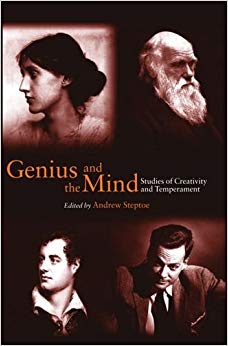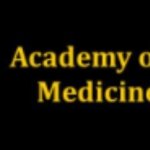Background
Andrew Steptoe was born on April 24, 1951at St. George’s Hospital, Hyde Park Corner, London, United Kingdom. He is a son of Patrick Steptoe, the obstetrician and gynaecologist.

High St W, Uppingham, Oakham LE15 9QE, United Kingdom
Steptoe studied at Uppingham School.
Trinity St, Cambridge CB2 1TA, United Kingdom
Steptoe graduated from Gonville and Caius College in 1972.
Oxford OX1 4AU, United Kingdom
Steptoe received his doctor's degree from Magdalen College in 1976.
Cranmer Terrace, London SW17 0RE, United Kingdom
Steptoe worked at St. George’s Hospital Medical School as an educator from 1977 till 1999.
Gower St, Bloomsbury, London WC1E 6BT, United Kingdom
University College London, where Steptoe served from 2000 to 2016.
London, United Kingdom
Steptoe became a fellow of the Academy of Medical Sciences.
London, United Kingdom
Steptoe became a member of Academia Europaea.
Steptoe became a fellow of the Academy of Behavioral Medicine Research.
Steptoe became a fellow of the Gerontological Society of America.















(With historical studies of some of the most famous creati...)
With historical studies of some of the most famous creative people, this exciting book considers the nature of creativity and genius from a psychological standpoint.
https://www.amazon.com/gp/product/0198523734/?tag=2022091-20
1998
Andrew Steptoe was born on April 24, 1951at St. George’s Hospital, Hyde Park Corner, London, United Kingdom. He is a son of Patrick Steptoe, the obstetrician and gynaecologist.
Steptoe studied at Uppingham School. In 1972, he graduated from Gonville and Caius College with a First Class degree in Natural Sciences. Steptoe received his doctor's degree on biofeedback and cardiovascular disease from Magdalen College four years later.
Steptoe became an honorary Doctor of Science of London University in 1995.
Steptoe's career began in 1977 when he was appointed as a lecturer to the Department of Psychology at St. George’s Hospital Medical School, located at the University of London. His work there lasted for twenty-two years. Steptoe raise to senior lecturer in 1981 and to Reader in 1987, he was appointed as a professor and head of the department in 1988.
In addition, Steptoe worked as a project leader of a Concerted Action on Breakdown in Human Adaptation by the Commission of the European Communities. Steptoe was a chair of the scientific program committee for the first International Congress of Behavioral Medicine in Uppsala, Sweden. He was also involved in the professional development of health psychology in the United Kingdom. Steptoe became a founding editor of the British Journal of Health Psychology. He was also an associate editor of such periodicals as the Psychophysiology, the Journal of Psychophysiology, the Journal of Psychosomatic Research, the Annals of Behavioral Medicine, the British Journal of Clinical Psychology and the International Journal of Rehabilitation and Health.
From 2000 to 2016, Steptoe held the position of a British Heart Foundation professor of psychology at the Department of Epidemiology and Public Health at University College London (UCL). He became the head of the Department of Epidemiology and Public Health of UCL in 2010, rising to a director of the Institute of Epidemiology and Health Care at UCL the next year, Steptoe held the position till 2017. Currently, he is a programme director of the Health Psychology MSc at UCL. He is a specialist in psychological and social factors in health, in age-related ill-health and in understanding the interface between behaviour and the biological processes involved in disease. In addition, Steptoe is a principal investigator of the English Longitudinal Study of Ageing, a longitudinal study that collects multidisciplinary data from a representative sample of the English population aged 50 and older.
Nowadays Steptoe serves as an associate editor of Aging and Mechanisms of Disease, as well as a section editor of Current Cardiology Reports. He has edited fourteen other international journals.
Steptoe has penned and edited several books on the way human psychology interacts with physical health. These titles include Psychological Factors in Cardiovascular Disorders, Health Care and Human Behavior, which he edited with Andrew Mathews, and Psychosocial Processes and Health, which he co-compiled and edited with Jane Wardle. Steptoe is also responsible for a more widely-reviewed volume on a different subject-opera. His The Mozart-Da Ponte Operas: The Cultural and Musical Background to Le nozze di Figaro, Don Giovanni, and Cosi fan tutte was published in 1988.
Steptoe’s first book, however, was 1981’s Psychological Factors in Cardiovascular Disorders. In this volume the author discusses not only the ways in which psychological factors such as stress and personality type can help bring on cardiovascular problems, especially ischemic heart disease and hypertension, but he also provides suggestions for psychological methods which might help treat victims of heart-related disease. As the title states, Steptoe’s The Mozart-Da Ponte Operas treats the operas created in collaboration between renowned eighteenth-century Austrian composer Wolfgang Amadeus Mozart and Italian libretticist Lorenzo Da Ponte.
Steptoe has made significant contributions to several aspects of health psychology and behavioural medicine, he also contributed to cultural and musical studies.
Steptoe won the Contributions in Positive Health Award from the International Positive Psychology Association in 2011. He received the Patricia Barchas Award for Sociophysiology from the American Psychosomatic Society six years later.
(With historical studies of some of the most famous creati...)
1998(This book provides illuminating insights into Mozart's cr...)
1988

He is a fellow of the organisation.
Academy of Medical Sciences , United Kingdom
2007

Steptoe is a member of the society.
Academia Europaea , United Kingdom
2003

He is a fellow of the academy.
Academy of Behavioral Medicine Research , United Kingdom
2010

He became a fellow of the society.
Gerontological Society of America , United States
2014
